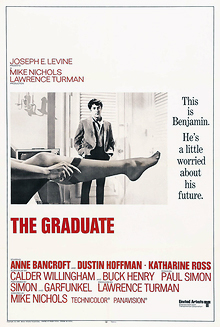A few days ago, the 2024 Summer Olympics began in Paris, France. To the shock and disgust of Christians around the world, it began with a recreation of The Last Supper.
But this time Christ was replaced by a woman with same-sex attractions, and the Apostles were replaced with some barely-clothed men in drag. It was topped off by someone dressed as the Greek god Dionysus being left on the table.
As you can imagine, the outrage was immediate and intense. The Olympic Committee has taken down the video of this and sent out a half-hearted apology. The director of this debacle claimed that it was aimed at a message of “inclusion.” Though it is always telling that when representation and inclusion are paramount, Christians tend to be excluded.
In the last day, the media (both mainstream and social) have been trying to gaslight believers by saying that this was not a recreation of The Last Supper. Instead, it was a Dionysian Feast, which was known for its wild debauchery. Often these explanations are accompanied by paintings of these feasts as if to prove a point. So Christians are being told that they are reading into things that are not there.
This, of course, does not pass muster. The most glaring point is that (as far as I can tell), the moment was promoted in the Olympic Committee materials as “The Last Supper on the Seine.” When you look at the iconography, it is clearly meant to mirror that of Leonardo Da Vinci’s “The Last Supper.” There is no way that the Olympic Committee did NOT know what this was.
So why did this happen and how should Christians respond?
WHY THIS HAPPENED
From a philosophical point of view, you have to remember that France has been imbued with a postmodern philosophy. Forgive me if I oversimplify, but post-modernism is based on the idea of “deconstructionism.” This means there is no true and valid way to look at the world. No one’s interpretation is more valid than another. Because of this, whenever anyone claims that something is “true,” the deconstructionist will begin to tear it down. All boundaries, structures, hierarchies, etc., are to be attacked.
The post-moderns take this idea and say that because of this, no “meta-narrative” is possible. A “meta-narrative” is a true and meaningful overview of the meaning of life, history, and the world.
Christianity stands in direct opposition to post-modernism. We believe that not all interpretations are valid. That is the whole idea behind the concept of sin: there is a right way to act and there is a wrong way. The post-moderns reject any idea of sin. Christianity also tells us that life, history, and the world are all part of God’s grand design. He made us with specific ends and purposes, and we sin when we frustrate those ends. The world is filled with natural symbols of deep truths. History is the narrative of how He creates us and saves us, that’s why it’s “His-story.”
The Last Supper is the beginning of the great Triduum, where we see Christ’s saving work in His life, death, and resurrection. It is this event that all Catholics remember as we gather around the altar at Holy Mass. The priest even invokes the words of that special night, “On the night He was betrayed…”
Holier and wiser people than I have written extensively about this Paschal Mystery. But allow me to point out that this event is the summit of Christ’s mission on Earth. It is a moment of table fellowship where Christ shares all that He is. He speaks His final discourses. He washes the feet of the Twelve. He takes the bread and says, “This is My Body, which is given up for you.” He takes the chalice and says, “This is my blood… do this in memory of Me.” All of this is to show that He is the One True God who will lead us to salvation through the cross and bring us everlasting life.
So what do we have in the Olympic presentation? The exact inversion of all of this.
Why specifically use people of immoral sexual lifestyles? Because for the post-moderns, there is no sin. If Christ is a man of chastity, then He is replaced with a homosexual woman. If the Apostles were called by Christ to have their nature perfected by Him, then they are replaced with men who declare they will perfect themselves by rejecting their own nature. Whereas Christ gave away His Body and Blood so that others may live, this Dionysian feast is about the indulgence of the body: “This is my body and I will do with it what I want.”
That is the philosophical reason behind this blasphemy. If you will permit a psychological interpretation, it feels very much like an adolescent need for rebellion and attention. Especially for people who have not yet found true, abiding meaning in their lives, they thrive off attention and controversy, like a teenager acting out by being “rebellious.” Part of the point is to shock.
I remember I had a colleague who kept giving harsher and harsher punishments to her students for being insubordinate, but it was not curbing their behavior. She asked for my insight since I tend to be a big disciplinarian in my school. In her case, I told her that their reward was getting her to react emotionally against them. It should be that they had the power to make her feel outraged.
In some ways it is the same thing here.
WHAT SHOULD WE DO?
Many wiser people like Bishop Barron have commented on this already. I humbly offer a few thoughts.



































